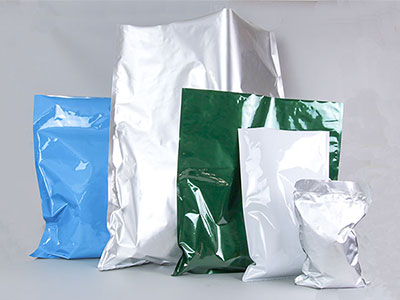
High barrier bags serve the purpose of safeguarding and maintaining the quality of products. They exhibit a minimal rate of oxygen transmission and moisture vapor transmission, coupled with a robust tensile strength and resistance to punctures. When combined
with an oxygen absorber or desiccant, these bags contribute to even extended shelf life and enhanced stability of the
enclosed items. However, the process of choosing the appropriate packaging is not always as simple as it may seem.
Numerous factors warrant consideration when opting for the most fitting packaging solution. These factors are rooted in the
nature of the product itself, as well as the specific storage conditions and duration. Adding to the complexity, there exists
a multitude of products in the market that share a resemblance but possess distinctly diverse barrier attributes. Due to this
intricacy, we highly recommend engaging in a consultation with our experts prior to finalizing your order. orders@sorbentsystems.com
There is a significant amount of misinformation circulating about "high barrier" materials. An effective film barrier, which provides protection against light, oxygen, and moisture for products, should possess complete opacity and a multi-layered structure. Additional factors to take into account encompass the selection of materials for the inner layer and the specific type of seal that is necessary.
While many consumers understand the need for a "Mylar foil" material, there's often confusion between this and metallized polyester—an entirely distinct material without the same barrier properties as authentic Mylar foil. Metallized polyester is employed in crafting Mylar balloons; it's considerably thinner and shinier than a genuine foil barrier film. This lightweight material serves the purpose of keeping balloons light but doesn't function effectively as a barrier film. We recommend opting for true Mylar Foil and a more robust film structure. Notably, even our thinnest film, PAKVF2.5M, is 75% thicker than the material used in balloons.
We offer a range of film structures tailored to meet customer product requirements, considering factors like oxygen, light, and moisture exposure. Our experts recommend suitable structures based on storage and protection needs, ensuring optimal barriers without unnecessary costs. Industries from food to electronics benefit from our technical insights, helping customers select packaging that safeguards items like pharmaceuticals, dehydrated foods, and sensitive materials against moisture and oxidation. Our specialists guide packaging choices for diverse products, including aggressive chemicals, flammable compounds, light-sensitive items, and more.
Selecting the appropriate material should align with the product's packaging needs. For instance, aggressive chemicals and fine powders necessitate specific inner layer requirements for pouches. These chemicals, and even natural elements like lemon, might have components that interact with diverse films. Beyond confirming material compatibility, verifying the capability to seal through the product is vital. Some items leave residues that pose heat sealing challenges, including fine powders and oily substances. For such cases, we suggest films with advanced inner layers capable of sealing directly through substances and residues.
Ensuring a robust seal for the barrier pouch is essential. We suggest employing our range of heat sealers, spanning from compact tabletop units to larger freestanding models. Specialty units, capable of sealing challenging materials like uncoated Tyvek, are available too. Custom or "contour" seal designs are also possible. Numerous industries adhere to strict regulations requiring documented seal settings, including consistent and measurable time, temperature, and pressure readings for each seal. These "validatable" sealers, produced by IMPAK Corporation, seamlessly integrate with many of the pouches we offer.
(Below you will find a brief overview of our stocked materials for your convenience)
| Material | Clear or Foil | Mil Thickness | MVTR (gr./100in2/24 hrs.) |
|---|---|---|---|
| PAKPM4AO | Clear | 3.0 mils | 0.03 |
| PAKVF4MCP | Foil | 4.0 mils | 0.0005 |
| PAKVF4PCA | Foil | 4.0 mils | 0.0006 |
| PAKVF4 | Foil | 4.3 mils | < 0.0005 |
| PAKVF4N | Foil | 4.3 mils | < 0.0003 |
| PAKVF4D | Dull Foil | 4.5 mils | < 0.0005 |
| PAKVF4W | White Foil | 4.5 mils | < 0.0005 |
| PAKVF4C | Foil | 5.0 mils | 0.0006 |
| PAKVF4K | Kraft Foil | 5.0 mils | 0.0005 |
| PAKVF4NNX | Foil | 5.7 mils | < 0.0003 |
| PAKVF4PC | Foil | 6.0 mils | 0.0003 |
| PAKDRY7500 | Foil | 7.5 mils | < 0.0006 |
For additional moisture protection, take a look at our desiccant selection—an area of potential interest. You can begin by visiting our Desiccant Overview Page.